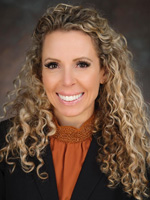Paula J. Cook, MD, Fยายืสำฦต
Candidate for Regional Director
Region VIII - Alaska, Arizona, Colorado, Hawaii, Idaho, Montana, Nevada, New Mexico, North Dakota, Oregon, South Dakota, Utah, Washington, Wyoming
 Paula J. Cook, MD, Fยายืสำฦต is a board-certified physician in addiction and family medicine, and board eligible in integrative medicine. Currently, she serves as the medical director of a rural, comprehensive, outpatient, non-profit substance use treatment center. She works with the local county treatment court and jail system. Additionally, she holds an adjunct faculty position at the University of Utah, where she previously played a key role as the Associate Director in establishing the University of Utah Addiction Medicine Fellowship.
Paula J. Cook, MD, Fยายืสำฦต is a board-certified physician in addiction and family medicine, and board eligible in integrative medicine. Currently, she serves as the medical director of a rural, comprehensive, outpatient, non-profit substance use treatment center. She works with the local county treatment court and jail system. Additionally, she holds an adjunct faculty position at the University of Utah, where she previously played a key role as the Associate Director in establishing the University of Utah Addiction Medicine Fellowship.
Dr. Cook works with the Opioid Response Network as a technical assistant for opioids and stimulants and has been the lead facilitator of a University of Utah substance use Project Echo. She has been the program director for a large SAMHSA and other federal and state grants. She has served as secretary of the Utah Chapter of ยายืสำฦต and on multiple state advisory and taskforce committees.
Dr. Cook is deeply committed to treating incarcerated individuals with substance use disorder, implementing low-barrier, evidence based programs in rural areas, harm reduction, and improving the lives of individuals with substance use disorder, mental illness, and healthcare access disparities. She has contributed to consulting and legislative committees focused on integrating addiction treatment into primary care settings.
Furthermore, she is the co-founder and host of "The Addiction Files," a podcast designed for professionals and learners in medical, behavioral health, legislative, judicial, and law enforcement fields.
Candidate Questionnaire Responses
1. What have been your greatest contributions to ยายืสำฦต or to the field of addiction medicine over the last 10 years?
I contributed to the establishment of the Addiction Medicine fellowship, actively training fellows in best practices. I also trained family medicine residents, NP, PA, and medical students, and initiated the University of Utah Addiction Medicine Interest Group. I feel proud of my educational contribution to the field of Addiction Medicine with our non profit evidence-based podcast I co-write and host with a colleague with 93 episodes and over 100,000 downloads.
I played a key role in implementing a rapid access to buprenorphine program at the University of Utah. I have also started harm reduction programs, including a state-sponsored syringe exchange program embedded within a primary care and substance use treatment program. This was particularly significant as it was introduced in an organization with traditionally rigid โabstinence-basedโ philosophies. Additionally, I implemented a syringe exchange program in a rural substance use clinic and opioid treatment program (OTP).
Most recently, and with great passion, I developed a robust substance use and harm reduction treatment program in a rural county jail. This included staff training, inmate overdose education and naloxone distribution (OEND) training, providing naloxone (and other harm reduction supplies) upon release, treating opioid use disorder (OUD) and alcohol use disorder (AUD) with medication for opioid use disorder (MOUD) and medication for alcohol use disorder (MAUD) within the jail, and coordinating linkage to treatment, peer support, and case management upon release.
2. How would your election to the ยายืสำฦต Board of Directors benefit ยายืสำฦต and the field of addiction medicine?
I feel fortunate to have had extensive and broad clinical experience in addiction medicine including working in embedded primary care/addiction medicine models, inpatient medically managed withdrawal units, dedicated outpatient treatment clinics, opioid treatment programs, intensive outpatient programs, residential treatment programs, treatment/recovery courts, jail settings, and in addiction medicine teaching, advocacy and leadership positions.
I have enjoyed working in private, academic, street medicine, urban, and now rural systems. Working in opioid treatment programs in both urban and rural settings has increased my desire to advocate for low barrier models of OTP, and substance use treatment delivery in general. These experiences bring a background of contextual knowledge of treating patients, working in various healthcare systems and settings.
I feel my experience as faculty at an academic institution, CMO over a large non-profit organization, and sitting on state task forces and advisory committees has given me administrative and opportunities to work with wonderful mentors. I hope my election would bring the benefits of this experience to the ยายืสำฦต Board and I can help speak for the experience of my region's provider and patients' experience.
